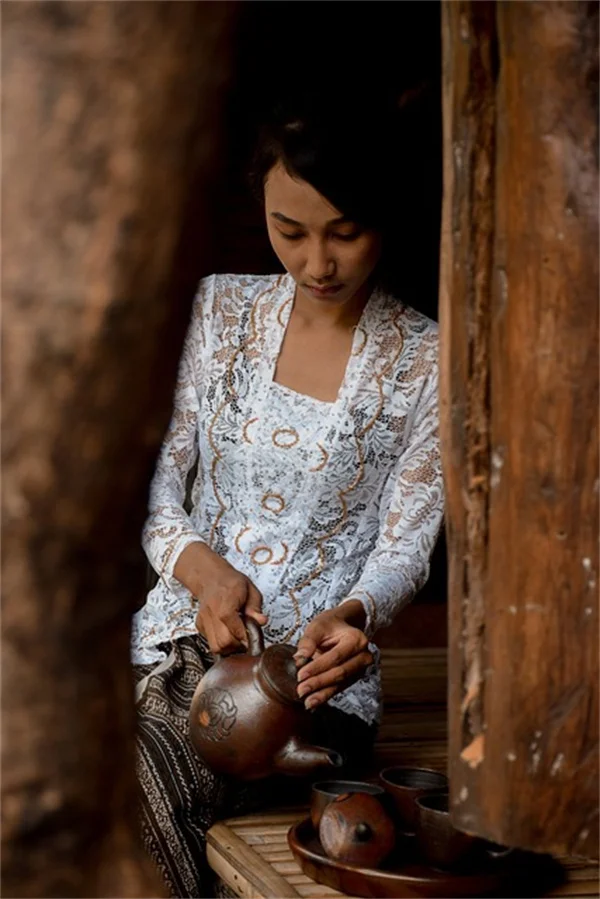What are the most important cancer screenings to get in 2024? The answer is clear: mammograms, cervical cancer tests, colonoscopies, PSA checks, and lung scans should be at the top of your health priority list this year. Early detection through regular screenings can literally save your life - that's why leading experts like Dr. Robert Smith from the American Cancer Society emphasize making these tests part of your routine preventive care.Here's what you need to know: these five screenings catch cancers when they're small and most treatable. I've seen firsthand how catching cancer early makes all the difference in treatment success. Your primary care doctor can help determine exactly which tests you need based on your age, gender, and risk factors. Don't wait until you have symptoms - that's like waiting for your car's engine light to come on before checking the oil!In this guide, we'll break down each essential screening - from the life-saving mammogram that can spot breast cancer three years before you feel a lump, to the simple PSA blood test that protects men against prostate cancer. We'll also show you exactly how to schedule these tests without the hassle. Because let's face it - we're all busy, but your health can't wait until next year.
E.g. :TikTok's Winter Arc Challenge: 10 Daily Habits for 90 Days to Transform Your Health
- 1、Why Cancer Screenings Should Be Your Top Priority in 2024
- 2、The Must-Have Cancer Screenings for 2024
- 3、Colorectal Cancer: Don’t Skip This Life-Saver
- 4、Lung Cancer Screening: Especially Important for Smokers
- 5、How to Actually Get Screened (Without the Hassle)
- 6、The Hidden Benefits of Regular Cancer Screenings
- 7、Screenings Help More Than Just You
- 8、Making Screenings Actually Enjoyable
- 9、The Future of Cancer Detection
- 10、FAQs
Why Cancer Screenings Should Be Your Top Priority in 2024
Early Detection Saves Lives – Here’s How
Let me ask you something – wouldn’t you want to catch cancer before it becomes a serious problem? That’s exactly what regular screenings help us do. Dr. Robert Smith from the American Cancer Society puts it perfectly: "Finding cancer early means we can treat it more successfully when it’s smaller and hasn’t caused symptoms yet."
Think of cancer screenings like your car’s oil change – you don’t wait for the engine to smoke before checking it! The medical field keeps improving these tests to help more people, especially as certain cancers like breast, colon, and lung cancer become more common. Your doctor can help determine which screenings you need based on your age, gender, and family history.
The Must-Have Cancer Screenings for 2024
Mammograms: Your Breast Health Guardian
Mammograms are like super-powered X-rays that can spot breast cancer up to three years before you could feel a lump. That’s incredible, right?
Here’s what the American Cancer Society recommends for women at average risk:
| Age | Screening Frequency |
|---|---|
| 40-44 | Optional annual screenings |
| 45-54 | Yearly mammograms |
| 55+ | Yearly or every other year |
For my friends at higher risk (maybe you have family history or BRCA gene), doctors might add ultrasounds or MRIs to your screening plan. Remember – early detection gives you the best shot at beating breast cancer!
 Photos provided by pixabay
Photos provided by pixabay
Cervical Cancer: Two Tests Are Better Than One
Did you know we have two great ways to catch cervical cancer early? The HPV test checks for the virus that causes most cases, while the Pap smear looks for suspicious cell changes.
These quick office tests could save your life. Dr. Khan explains they usually start at age 18, combining both tests for maximum protection. Your doctor will tell you how often you need them based on your results and health history.
Colorectal Cancer: Don’t Skip This Life-Saver
Why Colonoscopies Aren’t as Scary as You Think
I know what you’re thinking – "A tube where?!" But hear me out. Colonoscopies can actually prevent cancer by removing polyps before they turn dangerous. The prep might not be fun, but it’s way better than dealing with cancer later!
Most folks should start at 45 and repeat every 10 years if everything looks good. But if you’ve got family history or other risks, your schedule might be different. There are other options too – stool tests or flexible sigmoidoscopy – so talk to your doctor about what works best for you.
Prostate Cancer: The Simple Blood Test
Guys, this one’s for you. The PSA test is just a blood draw that checks for prostate cancer markers. Easy, right? Here’s when to consider it:
- Age 50 for average-risk men
- Age 45 if you’re African American or have a family history
- Age 40 if multiple relatives had early prostate cancer
Doctors debate the exact PSA levels that need follow-up, but that’s why we have experts – let them worry about the numbers while you focus on getting tested!
Lung Cancer Screening: Especially Important for Smokers
 Photos provided by pixabay
Photos provided by pixabay
Cervical Cancer: Two Tests Are Better Than One
If you’ve smoked heavily (think 1 pack/day for 20 years) and are between 50-80, listen up! The low-dose CT scan could save your life, even if you quit within the last 15 years.
This painless test takes just minutes and gives doctors a clear picture of your lungs. Why wait until you have symptoms when we can check now?
How to Actually Get Screened (Without the Hassle)
Making Screening Simple
Here’s a question I hear all the time: "How do I even get these tests?" Good news – your primary doctor can refer you to the right places:
- Mammograms at imaging centers
- Colonoscopies at hospitals or outpatient clinics
- PSA tests right in your doctor’s office
- Stool tests you can do at home
The American Cancer Society can help you find local screening options too. Don’t put this off – your future self will thank you!
Remember This One Thing
Cancer screenings aren’t about looking for trouble – they’re about giving yourself the best possible chance. Whether it’s scheduling that mammogram you’ve been putting off or finally doing the colonoscopy, 2024 is your year to take control of your health. What screening will you schedule first?
The Hidden Benefits of Regular Cancer Screenings
 Photos provided by pixabay
Photos provided by pixabay
Cervical Cancer: Two Tests Are Better Than One
You know that nagging worry in the back of your mind when you put off health checkups? Regular screenings wipe that away like a magic eraser. Negative results don't just mean no cancer - they mean months of not stressing about "what ifs".
My friend Sarah avoided mammograms for years because she was scared. When she finally went, the relief she felt was incredible - even before getting her results! Just taking action made her feel empowered. Now she's a screening evangelist, telling everyone at book club how good it feels to be proactive.
Insurance Perks You Didn't Know About
Did you realize many insurance plans actually reward you for getting preventive screenings? Under the Affordable Care Act, most plans cover 100% of recommended cancer screenings with no copay.
Here's a breakdown of typical coverage:
| Screening Type | Typical Insurance Coverage | Potential Savings |
|---|---|---|
| Mammogram | 100% covered annually | $150-$300 per test |
| Colonoscopy | 100% every 10 years | $1,000-$3,000 per procedure |
| Pap Smear | 100% every 3 years | $50-$200 per test |
Some insurers even offer premium discounts or wellness credits for completing screenings. That's like getting paid to take care of your health!
Screenings Help More Than Just You
Your Family Will Thank You
When you get screened, you're not just protecting yourself - you're protecting everyone who loves you. Early detection means less aggressive treatment if something is found, which translates to:
- More energy for your kids/grandkids
- Less time away from work
- Lower medical bills for your family
My neighbor Jim caught his prostate cancer early through screening. Instead of intensive treatment, he needed just minor surgery and was back coaching Little League in two weeks. His players never even knew he was dealing with cancer!
You Become Part of the Solution
Here's something cool - your screening data helps researchers develop better tests and treatments. Anonymous results contribute to massive databases that scientists use to:
- Identify cancer patterns
- Improve detection methods
- Develop new prevention strategies
By getting screened, you're literally helping future generations fight cancer. How awesome is that?
Making Screenings Actually Enjoyable
Turn It Into "Me Time"
Who says health checks can't be fun? I treat my mammogram days like mini spa days - I schedule morning appointments and treat myself to a fancy coffee afterward. One hospital even offers massage chairs in the waiting room!
For colonoscopy prep, my friend Karen makes it a movie marathon night with clear broth "tea" and jello. She says it's the only time she gets to binge-watch shows guilt-free!
Bring a Buddy System
Everything's better with friends, right? Start a screening pact with your besties - you'll all schedule appointments around the same time and celebrate with lunch afterward. My book club does this and we've turned it into an annual tradition complete with silly photos in the clinic parking lot.
For guys who feel awkward about prostate exams, consider making it a guys' day out - screening in the morning, golf in the afternoon. Whatever makes it feel less clinical!
The Future of Cancer Detection
Exciting New Tech Coming Soon
Researchers are developing some amazing new screening methods that could make detection even easier:
- Blood tests that can detect multiple cancers from one sample
- AI-assisted imaging that spots abnormalities human eyes might miss
- At-home test kits for certain cancers (like the new colon cancer stool tests)
But here's the thing - these future options shouldn't stop you from using today's proven methods. The best screening test is the one you'll actually do!
Personalized Screening Plans
Soon, your screening schedule might be based on your unique DNA rather than just age guidelines. Some clinics already offer genetic testing to customize your prevention plan.
Imagine knowing exactly which cancers you're most at risk for and screening accordingly. That's precision medicine in action - and it's coming faster than you think!
E.g. :Recommendation: Breast Cancer: Screening | United States ...
FAQs
Q: How often should I get a mammogram?
A: The American Cancer Society recommends annual mammograms for women 45-54, then switching to every other year after 55 if you're in good health. But here's what many women don't realize - you can start as early as 40 if you want! I always tell my friends: "Think of it like your annual birthday present to yourself - the gift of peace of mind." High-risk women may need additional screenings like MRIs. The key is talking to your doctor about your personal situation rather than just following general guidelines.
Q: Are colonoscopies really necessary if I feel fine?
A: Absolutely! Here's why colonoscopies are so crucial: they can actually prevent colon cancer by removing precancerous polyps before they turn dangerous. The prep might not be fun (let's be honest, it's the worst part), but the procedure itself is painless thanks to sedation. Most people only need one every 10 years starting at 45 - that's just 10 days of prep spread over a decade for potentially life-saving protection. If colon cancer runs in your family, you might need to start earlier - my cousin began at 35 because of his family history.
Q: What's the best age to start prostate cancer screening?
A: This depends on your risk level. Average-risk men can wait until 50, but African American men or those with family history should start at 45. Here's something many guys don't know - the PSA test is just a simple blood draw! No uncomfortable procedures. The tricky part is interpreting results, which is why you need an experienced doctor. My advice? Have the conversation with your physician at 40, then decide together when to begin based on your personal risk factors.
Q: I quit smoking years ago - do I still need lung cancer screening?
A: If you quit within the last 15 years and had at least a 20 pack-year history (that's 1 pack/day for 20 years or 2 packs/day for 10 years), then yes! The low-dose CT scan is quick, painless, and could save your life. Many former smokers think they're in the clear, but lung cancer can develop years after quitting. The screening is only recommended up to age 80, so don't wait too long to ask your doctor about it. As my pulmonologist friend says: "It's the easiest cancer screening we have - just lie still for 5 minutes!"
Q: How can I afford all these cancer screenings?
A: Great news - under the Affordable Care Act, most insurance plans cover preventive cancer screenings at 100% with no copay! Even if you're uninsured, programs like the American Cancer Society's Hope Lodge can help. I've helped many patients navigate this system - the key is asking your doctor's office to code it as preventive care. Some clinics offer sliding scale fees too. Remember: treating advanced cancer costs way more than preventive screenings. As we say in healthcare: "An ounce of prevention is worth a pound of cure."


